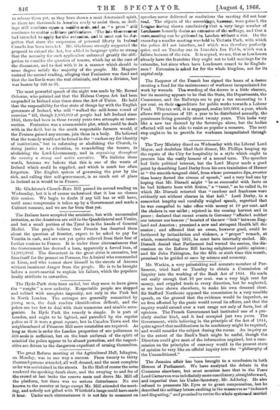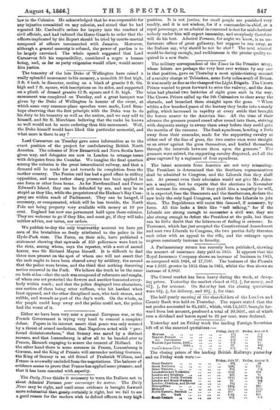The Jamaica affair has been brought to. a conclusion. in
both Houses of Parliament. We have analyzed the debate in the Commons elsewhere, but must mention here that in the Peers Lord Carnarvonwas indefinitely more conciliatory, straightforward, and impartial than his Under-Secretary, Mr. Adderley. He also refused to prosecute Mr. Eyre or to grant compensation, but he described the military letters mating in the massacres as "ineleeent and disgusting," and promised to revise the whole systenuoL marble./
law in the Colonies. He acknowledged that be was responsible for any injustice committed on any colonist, and stated that he had repeated Mr. Cardwell's orders for inquiry into the conduct of civil officials, and had induced the Horse Guards to order that the officers implicated by thaReport sheuld be tried by courts-martial composed of officers unconnected with Jamaica. Moreover, although a general amnesty is refused, the power of pardon is to be largely exercised. The whole speech suggested that Lord 'Carnarvo,n felt his responsibility, considered a negro a human being, and, as far as party exigenciee would allow, would secure him justice.































 Previous page
Previous page